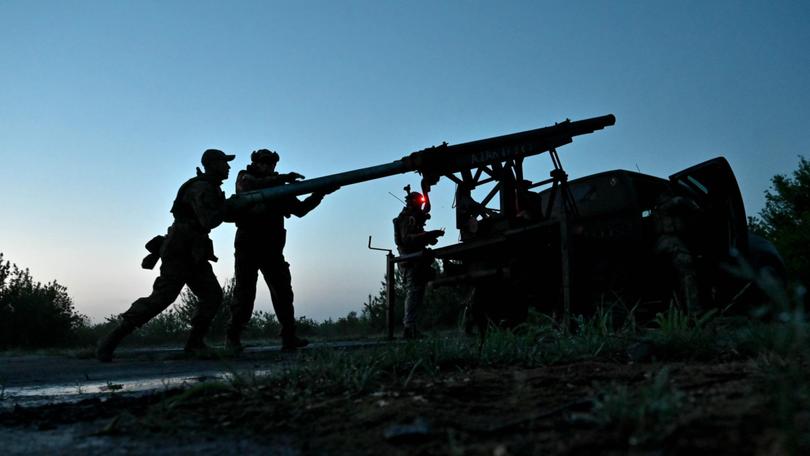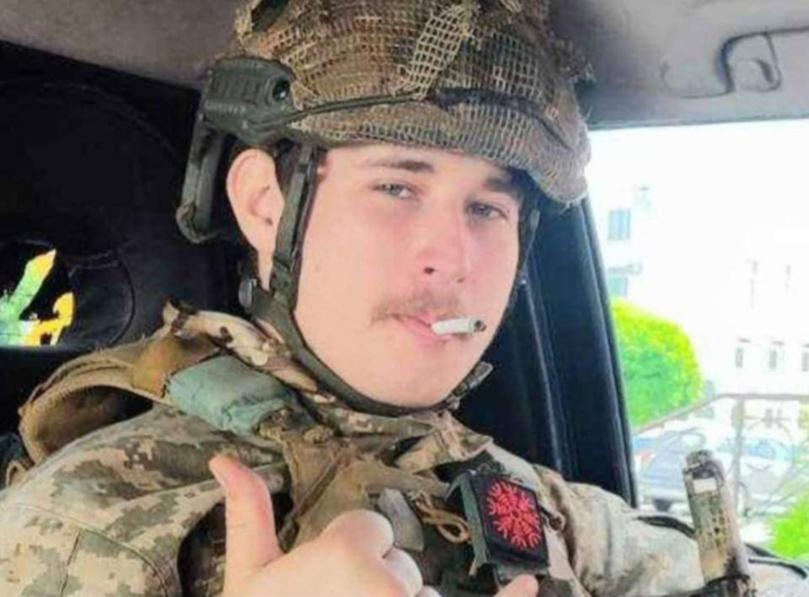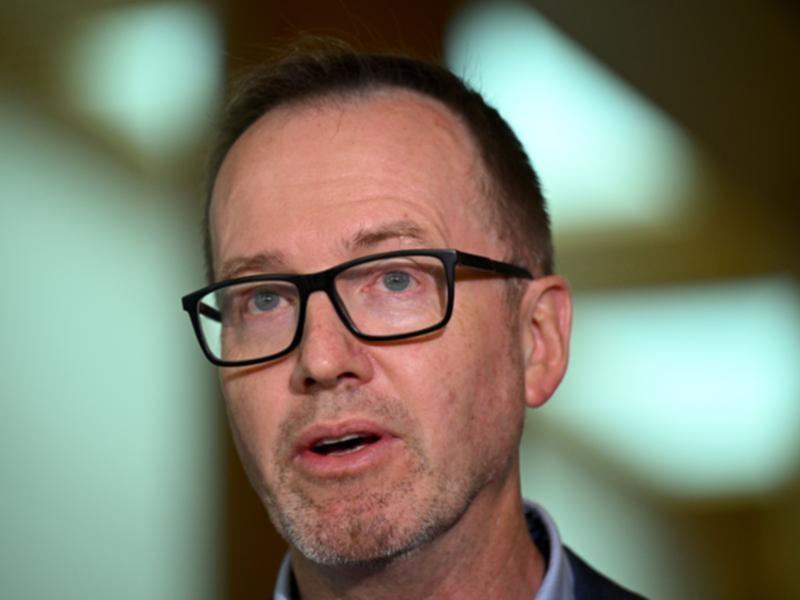Australian Government in the dark over number of Aussies fighting for foreign militaries — including Russia
The Federal Government is not keeping tabs on whether Australians are heading overseas to fight for foreign militaries, including for Russia, in what experts say could be a risk to national security.

The Federal Government is not keeping tabs on whether Australians are heading overseas to fight for foreign militaries, including for Russia, in what experts say could be a risk to national security.
The Home Affairs Department and Australian Border Force have revealed they “do not track individuals travelling overseas intending to serve in foreign military services”, including the Russian defence force, in response to questions on notice from the last round of senate estimates.
They said that while they were not aware of any Australian residents leaving to join the Russian military, they believed four had travelled to serve the Israeli Defence Force since October 7, but did not have an exact figure.
Sign up to The Nightly's newsletters.
Get the first look at the digital newspaper, curated daily stories and breaking headlines delivered to your inbox.
By continuing you agree to our Terms and Privacy Policy.It’s unknown how many Australians have travelled to join the Ukrainian military either, however, 24-year-old Queensland man Brock Greenwood last month became the seventh Australian to be killed in action since the war broke out in February 2022.
Australians have a long history of fighting for foreign militaries, and while it has never been tracked and is not illegal, one expert said not knowing who is engaging with militaries of countries such as Russia could pose security risks.

Defence analyst and UNSW adjunct fellow Jennifer Parker said while it might be difficult, Australia should attempt to keep track of individuals who join foreign defence forces.
She said while there had been little to no reporting about Australians fighting on the Russian side, compared to some estimates of 200 for Ukraine, there “probably are some” who were serving Moscow and they posed a risk to our national security.
“When somebody is motivated to go overseas and fight in hostilities for a side that is not necessarily aligned to Australian values, they’re going over there and potentially being more radicalised towards those values,” she told The Nightly.
“And then bringing back someone who has been through that experience, who has engaged in a conflict and fighting for a side whose values don’t align with Australia, can potentially pose security risks in Australia because they’re bringing that skill set, that experience, that radicalisation back to Australia.”
Greens senator David Shoebridge, who asked the questions of the department and ABF, was incredulous that Australians could fight for Russia without authorities being aware.

“There have been multiple allegations of brutal war crimes by Russian troops in the war in Ukraine and we have no idea if any Australians have been involved,” he said.
“There is a very real risk of people being radicalised when they fight in one of these appalling overseas wars and then bringing that damage and that politics back to Australia. Of course, we should be keeping a close eye on this.
“The admission from the Albanese Labor Government, that it simply does not track people fighting in foreign militaries currently implicated in war crimes and illegal invasions is a failure of duty.”
The Criminal Code states it is an offence to “enter a foreign country with an intention to engage in a hostile activity unless serving in or with the armed forces of the government of a foreign country”.
Ms Parker said that didn’t necessarily make the conduct OK and could leave someone open to criminal prosecutions back in Australia.
“If you undertake conduct that is against international law or some aspect of Australian law, for example, if there’s evidence that you engaged with war crimes, then you can still be prosecuted in Australia,” she said.
“I think people who go overseas to fight in foreign militaries should think twice about it, especially foreign militaries where they may be in a position where they are undertaking conduct that could be illegal in Australia. Of course, it would be difficult to prosecute some of these things.”
Mr Shoebridge said it was particularly concerning in light of espionage charges being laid against two Russian-born Australian citizens last month, including a private in the defence force, which has raised issues about the scrutiny of background checks.
Kira Korolev, 40, who had worked as an information systems technician with the Australian Army, is accused of undertaking undeclared travel to Russia where she instructed her 62-year-old husband Igor back home on accessing sensitive material with the intention of handing it to the Kremlin.
“You would have thought after the Government let a Russian spy serve in the ADF for years they might have put a system in place to check for when Australians are serving in the Russian military,” Mr Shoebridge said.
“The fact they aren’t doing this is hard to comprehend.”

The Government, along with security agencies, do have the means to identify and keep tabs on individuals of national security interest likely to participate in or support offshore conflicts.
A spokesperson for the Department of Home Affairs said the Government was “alert to the potential” of people serving with foreign militaries.
“The Government encourages all Australians who seek to serve with the armed forces of a foreign country to carefully consider their legal obligations, and ensure their conduct does not constitute a criminal offence,” they said.
The Coalition’s foreign affairs spokesman Simon Birmingham said the matter deserved “serious attention”.
“Although there are limits to tracking where Australians go and what they do when they leave our shores, it is an entirely reasonable expectation for Australia’s intelligence agencies to be monitoring if Australians are taking up arms against our own national interest,” he told The Nightly.
“We have laws in place that if Australians leave to fight in wars against the national interest may not be able to return to Australia.
“At the very least this answer deserves more serious attention by the government to provide reassurance that intelligence tasks are being undertaken and efforts made to uphold Australian laws in relation to foreign fighters.”

